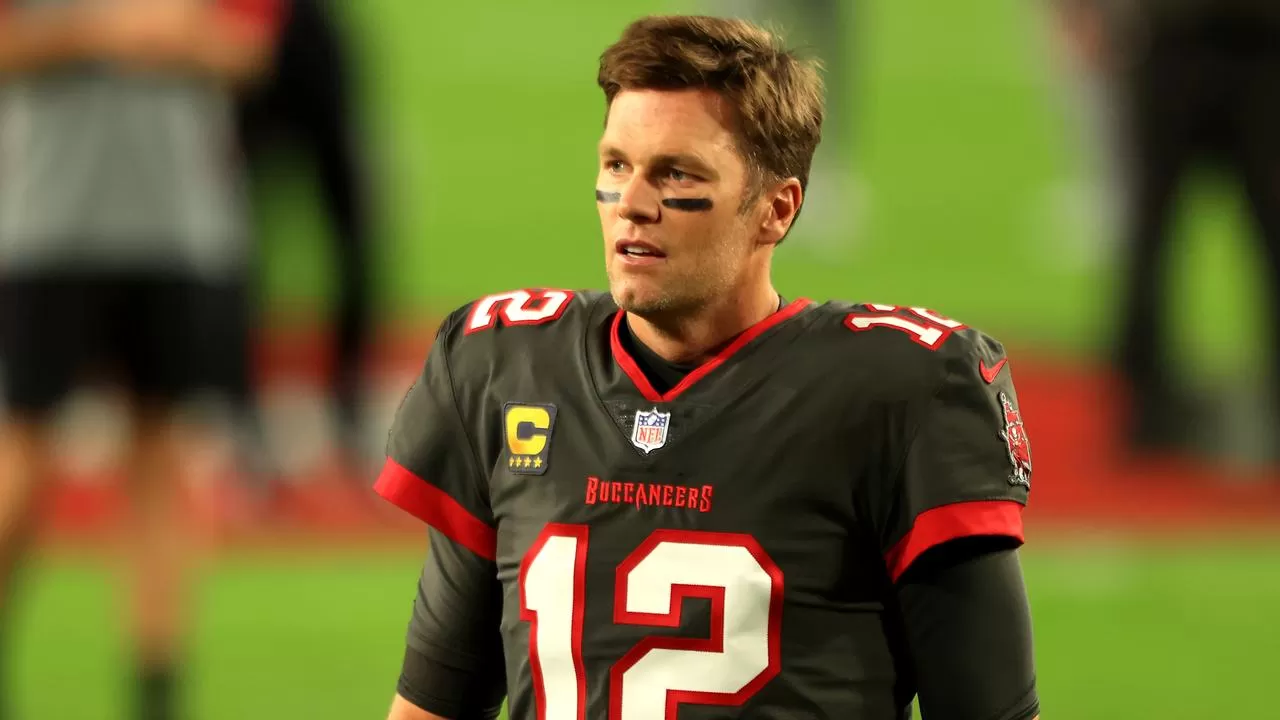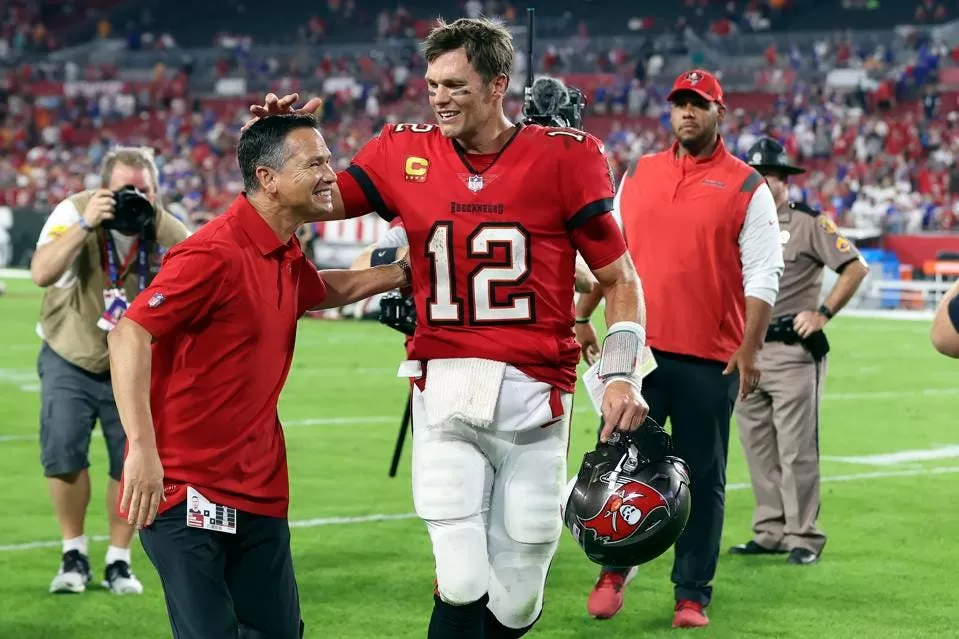
Tom Brady, celebrated worldwide as one of the most iconic athletes in history, has recently found himself at the center of a heated controversy that intertwines sports, social activism, and corporate branding. Reports suggest that Brady refused to participate in a Nike promotional campaign featuring its Pride-themed products, stating his belief that the sports field should remain focused on competition rather than political or social statements. This decision has ignited widespread debate and is said to have contributed to a staggering $100 million loss for Nike, as the repercussions ripple across the sports and marketing industries.
The controversy began during a high-profile photoshoot for Nike’s latest campaign, designed to spotlight its Pride collection—a line of merchandise celebrating LGBTQ+ rights and inclusivity. Nike, renowned for its commitment to progressive values, had invested heavily in this initiative, viewing it as a cornerstone of its broader mission to champion diversity and equality. However, when Brady was asked to don Pride-themed apparel, he reportedly declined, stating, “The field is for playing, not for woke pride.”
Brady’s firm stance immediately polarized public opinion. Supporters lauded his decision as a defense of apolitical professionalism in sports, arguing that athletes should prioritize their craft over engaging in social or political discourse. Critics, however, were quick to denounce his refusal as a rejection of inclusivity and a missed opportunity to support marginalized communities. For Nike, the fallout was swift and severe: a reported $100 million loss in market value, compounded by reduced sales of Pride merchandise and a wave of negative media coverage.

Nike’s Legacy of Activism and the Challenge Ahead
For decades, Nike has been at the forefront of corporate social activism, aligning its brand with causes such as racial justice, gender equality, and LGBTQ+ rights. Campaigns featuring figures like Colin Kaepernick and events celebrating Pride have underscored Nike’s commitment to these ideals, resonating strongly with younger, socially-conscious consumers. The inclusion of Pride merchandise in its latest campaign was intended to reinforce this progressive branding.
Brady’s refusal, however, presents Nike with a critical challenge: balancing its dedication to social causes with the realities of managing partnerships with globally influential athletes who may not share the company’s views. This incident raises questions about how corporations navigate the intersection of personal beliefs, public perception, and business strategy, particularly in an era where consumers expect brands to take clear stances on societal issues.
The Brady-Nike controversy reflects a broader cultural tension within sports and advertising. Increasingly, athletes and corporations are using their platforms to advocate for social and political movements, from LGBTQ+ rights to environmental sustainability. While many applaud these efforts as necessary and progressive, others criticize them as unwelcome politicization of spaces traditionally reserved for entertainment and competition.
Brady’s decision to avoid involvement in Nike’s Pride campaign exemplifies the complexities of this debate. As one of the most marketable athletes of all time, his actions carry significant weight, influencing public opinion and corporate strategies alike. For Nike, the decision to feature Brady in this campaign now appears miscalculated, as the disconnect between his personal stance and the company’s message has highlighted the risks of aligning individual endorsements with broader brand narratives.

Financial and Reputational Fallout
Nike’s estimated $100 million loss underscores the tangible consequences of such misalignments. Beyond the immediate decline in Pride product sales, the brand has faced scrutiny for failing to anticipate the potential backlash associated with Brady’s involvement. Analysts suggest that Nike must now carefully recalibrate its marketing approach to preserve its reputation as a champion of inclusivity while avoiding alienation of more conservative segments of its customer base.
For Brady, the implications are equally significant. While his refusal has bolstered his image among those who value a perceived neutrality in sports, it has also sparked criticism from advocates of LGBTQ+ rights and fans who see his stance as out of step with modern values. This incident could influence future endorsement opportunities, as brands weigh the risks of associating with a figure whose personal beliefs may not align with their marketing goals.
Looking Ahead: The Future of Activism in Branding
The controversy surrounding Brady and Nike raises profound questions about the role of activism in corporate identity. Can companies like Nike continue to champion social causes without alienating key demographics? Will the blending of sports, politics, and business become an enduring feature of modern branding, or will growing divisions in public opinion force a retreat from such strategies?
As the debate unfolds, one thing remains clear: the intersection of social issues and sports is no longer avoidable. For Nike, Brady, and the broader sports industry, navigating this complex terrain will require thoughtful engagement with diverse perspectives, a willingness to adapt, and a commitment to authenticity. Only time will tell how this controversy reshapes the relationship between athletes, brands, and the causes they choose to support—or reject.
